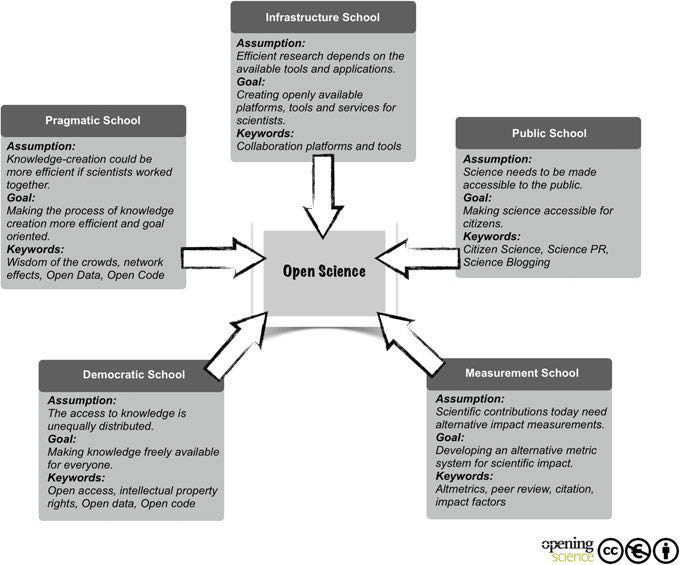Orientierung (tphff2015): Unterschied zwischen den Versionen
Aus Philo Wiki
Anna (Diskussion | Beiträge) K (link) |
Anna (Diskussion | Beiträge) K (headings) |
||
| Zeile 1: | Zeile 1: | ||
| − | + | == einfach offen == | |
'''[[Open_Culture_%28LWC%29]]''' | '''[[Open_Culture_%28LWC%29]]''' | ||
| Zeile 6: | Zeile 6: | ||
::'''"The term ''open access'' may suggest that, like a door, a journal is open or it is not."''' (Willinsky, 2006, p.28) | ::'''"The term ''open access'' may suggest that, like a door, a journal is open or it is not."''' (Willinsky, 2006, p.28) | ||
| − | + | == ein offenes Geheimnis == | |
Nick Marx: ''Storage Wars: Clouds, Cyberlockers, and Media Piracy in the Digital Economy'' | Nick Marx: ''Storage Wars: Clouds, Cyberlockers, and Media Piracy in the Digital Economy'' | ||
| Zeile 15: | Zeile 15: | ||
::If, as Lawrence Lessig argues, every media industry is born of some form of piracy, then describing pirate practices with more nuance can provide a clearer picture of how institutionalized media powers are confronting the many challenges of the digital economy. Characterizing media piracy as partly constitutive of, rather than directly oppositional to, established industry routines allows us to see the former with the same complexity commonly afforded the latter. It also avoids reinforcing binaristic conceptions—old versus new or licit versus illicit—of how media circulate and participate in the construction of cultural discourses. | ::If, as Lawrence Lessig argues, every media industry is born of some form of piracy, then describing pirate practices with more nuance can provide a clearer picture of how institutionalized media powers are confronting the many challenges of the digital economy. Characterizing media piracy as partly constitutive of, rather than directly oppositional to, established industry routines allows us to see the former with the same complexity commonly afforded the latter. It also avoids reinforcing binaristic conceptions—old versus new or licit versus illicit—of how media circulate and participate in the construction of cultural discourses. | ||
| − | + | == offene Wissenschaft == | |
| Zeile 22: | Zeile 22: | ||
[[Bild:Fecher-friesicke2.png|800px|center]] | [[Bild:Fecher-friesicke2.png|800px|center]] | ||
| − | + | == offen zugänglich == | |
Version vom 18. März 2015, 16:27 Uhr
Inhaltsverzeichnis
einfach offen
- "The term open access may suggest that, like a door, a journal is open or it is not." (Willinsky, 2006, p.28)
ein offenes Geheimnis
Nick Marx: Storage Wars: Clouds, Cyberlockers, and Media Piracy in the Digital Economy
DOI:10.1349/PS1.1938-6060.A.426, E-Media Studies 3/1 (2013)
- If, as Lawrence Lessig argues, every media industry is born of some form of piracy, then describing pirate practices with more nuance can provide a clearer picture of how institutionalized media powers are confronting the many challenges of the digital economy. Characterizing media piracy as partly constitutive of, rather than directly oppositional to, established industry routines allows us to see the former with the same complexity commonly afforded the latter. It also avoids reinforcing binaristic conceptions—old versus new or licit versus illicit—of how media circulate and participate in the construction of cultural discourses.

